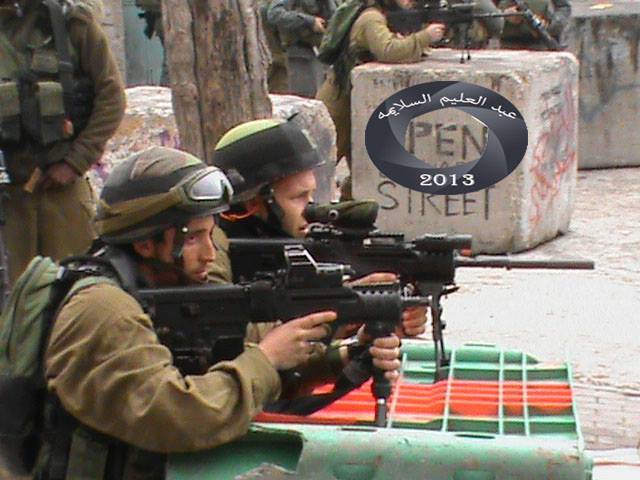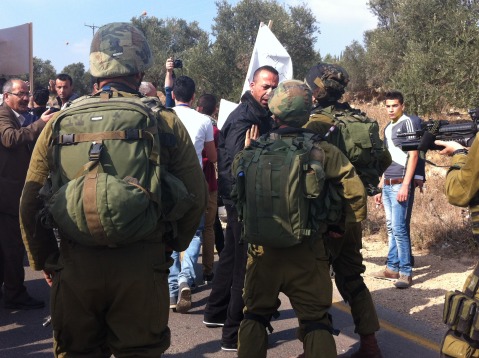Tag: Rubber-coated steel bullets
-

Clashes for two days in the Palestinian city of Hebron
03rd January 2014 | International Solidarity Movement, Khalil Team | Hebron, Occupied Palestine At approximately 11.30am yesterday morning, Israeli forces detained a 13-year-old boy at Bab Al-Baladiyye in Khalil (Hebron). After a short period of time the young boy was released and a group of Israeli soldiers invaded the old city of Hebron, harassing residents and…
-

Five demonstrators injured in violent Nabi Saleh protest
29th December 2013 | International Solidarity Movement, Ramallah Team | Nabi Saleh, Occupied Palestine On Friday 27th December, during the weekly demonstration in Nabi Saleh, Israeli forces raided the town with a “skunk” (chemical) truck, fired large amounts of tear gas canisters and shot rubbed-coated steel bullets at unarmed protesters. Five people were injured by rubber-coated…
-

Demonstration in Ya’bad is violently repressed by Israeli forces
21st November 2013 | International Solidarity Movement, Nablus Team | Ya’bad, Occupied Palestine Yesterday in the village of Ya’bad, a peaceful protest was violently repressed by Israeli forces through the use of tear gas canisters, stun grenades and rubber-coated steel bullets. Demonstrators were directly targeted by Israeli soldiers, five Palestinians were injured and two were…
